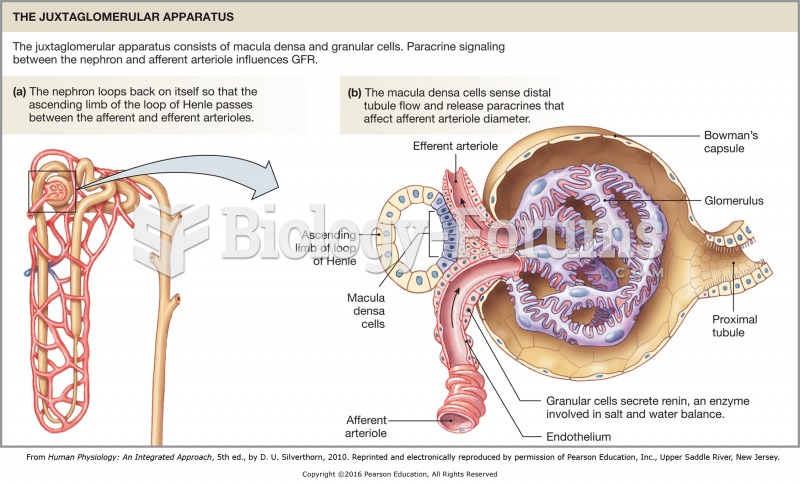|
|
|
Amphetamine poisoning can cause intravascular coagulation, circulatory collapse, rhabdomyolysis, ischemic colitis, acute psychosis, hyperthermia, respiratory distress syndrome, and pericarditis.
The toxic levels for lithium carbonate are close to the therapeutic levels. Signs of toxicity include fine hand tremor, polyuria, mild thirst, nausea, general discomfort, diarrhea, vomiting, drowsiness, muscular weakness, lack of coordination, ataxia, giddiness, tinnitus, and blurred vision.
Symptoms of kidney problems include a loss of appetite, back pain (which may be sudden and intense), chills, abdominal pain, fluid retention, nausea, the urge to urinate, vomiting, and fever.
Cytomegalovirus affects nearly the same amount of newborns every year as Down syndrome.
Though newer “smart” infusion pumps are increasingly becoming more sophisticated, they cannot prevent all programming and administration errors. Health care professionals that use smart infusion pumps must still practice the rights of medication administration and have other professionals double-check all high-risk infusions.
 The medical assistant will provide patient education regarding the daily use of diabetic glucose ...
The medical assistant will provide patient education regarding the daily use of diabetic glucose ...
 The macula densa and the juxtaglomerular (JG) cells. Osmoreceptors in the macula densa sense low ...
The macula densa and the juxtaglomerular (JG) cells. Osmoreceptors in the macula densa sense low ...





